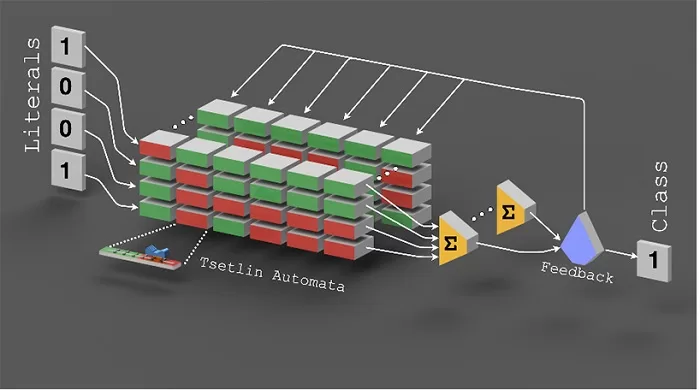Education
Improving Financial Risk Analysis with Computing Research and AI

Newcastle University researchers are part of a new programme set to transform national-level financial risk analysis by providing radical new computational capabilities.
These new capabilities are driven by event-triggered computing, a new computational model based on speed and almost constant scalability. Another layer involves artificial intelligence, which is able to learn from large, irregular, and constantly evolving data-sets. The project will also explore how the new technology can be applied in a practical way.
All these layers will work together to enable proactive and real-time risk analysis, which can pave the way to significant advances for regulatory policy, business practice and market control.
Bringing together experts from Newcastle University, the University of Southampton (overall project lead institution) and Imperial College London, SONNETS – Scalability Oriented Novel Networks of Event Triggered Systems – takes a clean-slate approach to next generation computer modelling and artificial intelligence.
SONNETS is due to start in October 2023. The £7.5m project will receive £6.5m funding from the Engineering and Physical Sciences Research Council (EPSRC).
The team at Newcastle University involves Dr Rishad Shafik, Professor Alex Yakovlev and Dr Kabita Adhikari. The experts will develop national-scale machine learning systems using event-triggered computing.
Dr Rishad Shafik, Reader in Electronic Systems at the School of Engineering is the Newcastle University lead. He said: “Modelling risk for one bank is a difficult problem, and modelling the entire UK is much harder. Banks have complex, constantly changing portfolios, so building a picture of ‘who owns what’ means tracking millions of trades per day. Even if we have that picture, we still need to somehow assess risk, but that requires anticipating the future: we must pre-emptively identify potential scenarios, then estimate how much is lost in each scenario.”
“Currently regulators use ‘stress tests’ to identify national risk – they define a possible challenging economic scenario, then ask all the banks to estimate how much they might lose. However, this is both slow – the process takes months – and limited – they only explore one very severe scenario, which probably isn’t the one that causes the problem.
“SONNETS will create a system that performs national-level risk analysis in real-time, by building a ‘digital twin’ of the UK’s financial system and using it to continually generate plausible future scenarios and assess their risk. We then use low-complexity artificial intelligence inspired by Tsetlin machines to learn what risky scenarios look like. We have international leadership in this area.”
“The new event-triggered artificial intelligence system will provide regulators completely new tools: a day-by-day view of the current national-risk of the UK, rather than waiting months for stress tests; the ability to look forwards to identify and mitigate previously unknown risks as they develop, rather than waiting for a financial crisis to reveal them.”
Pioneering research
Professor Alex Yakovlev, Professor of Computer System Design, Newcastle University School of Engineering, added: “Newcastle is internationally known for cutting edge research in asynchronous and low-power machine learning using the principles of Tsetlin machine.
“For example, our research excellence in the field of asynchronous systems and its relevance to financial sector has been confirmed in the past two REF competitions, where we were awarded 4* grades for our impact case studies. The one in REF 2014 had demonstrated how our asynchronous design methods and tools based on Petri nets had been used by industry leading vendor Intel Corporation for their switch silicon technology, on which most transaction on the NYSE and NASDAQ relied. Then, in REF 2021 we had showcased our Workcraft design tools that were used to save battery life and improve reliability in consumer electronics in hundreds of billions of devices, from mobile phones to internet-of-things.”
He further added: “Now, combining our expertise in designing low power logic circuits with our knowledge and understanding of the principles of Mikhail Tsetlin’s learning automata, originating in the USSR in the 1960s, we are in strong position to develop super energy efficient technology for highly distributed, event-triggered and naturally interpretable machine learning computational platforms for future super-complex data analysis.”
Source: Newcastle University


















































